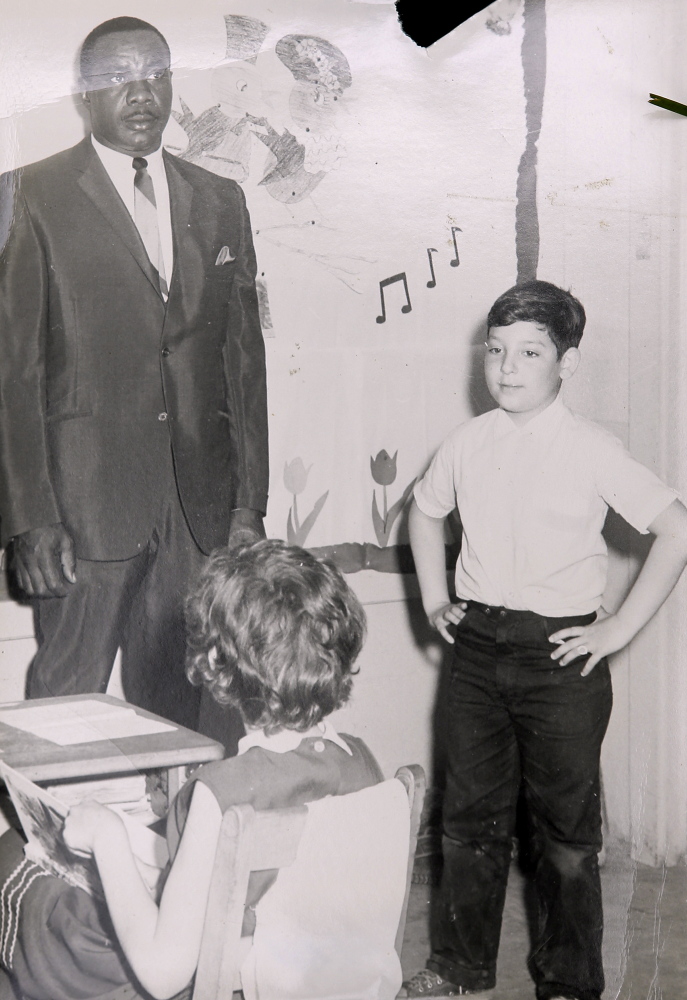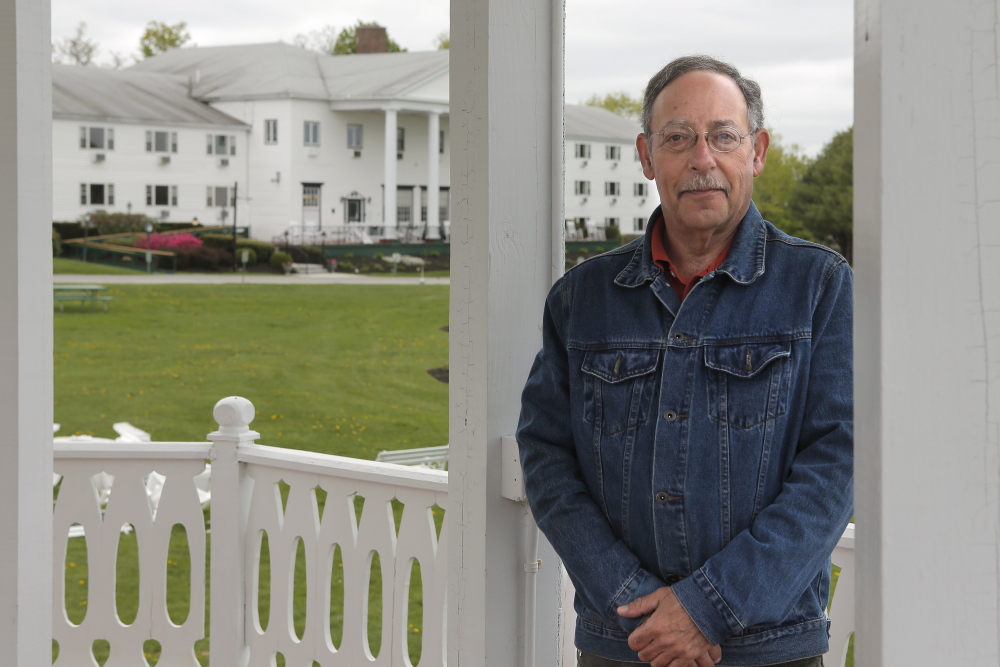POLAND — Michael Feldman still calls Sonny Liston his “friend,” even though they knew each other for only two weeks 50 years ago.
Liston was the former heavyweight champion who came to stay at the the Poland Spring House, the hotel owned by Feldman’s grandfather Saul.
Michael was an impressionable 8-year-old so naive that he actually summoned the nerve to ask Liston if he would visit his school while he was in town training for a championship rematch with Muhammad Ali.
Liston said yes, thus creating probably the most unlikely scene ever witnessed at Poland Community School – Feldman, the only Jewish student in the school of about 400 first- through eighth-graders, leading a large and impeccably dressed black man and his entourage from one classroom to another. There was only one black family in town at that time, Feldman recalled.
“He was very nice. He spent a lot of time there with everybody,” Feldman said.
The children received a memento of the occasion – a mimeographed copy of the outline of one of Liston’s mammoth hands.
Feldman, now a real estate broker in Brunswick, came away with something more lasting.
“The older I get, the more I think he did more for me than I realize,” Feldman said. “I think that experience really meant a lot subconsciously. Here I was with great big strong powerful professional fighters who were black people from the South, and they were great. I felt perfectly comfortable with them. So I don’t look at people of different races as scary.”
Liston had a reputation for being surly, but everyone noticed how easygoing and friendly he was with children. That’s the side that Feldman witnessed, although he said his entire family grew fond of Liston. The boxer was given use of a private dining room, and invariably invited the Feldmans to join him, which they did.
Michael would come home from school each day and watch Liston and his sparring partners work out in a makeshift ring set up beneath a chandeliered ceiling in the nearby Poland Spring Mansion. Townsfolk would drive in and pay to watch as well.
“The people paying a dollar to come and see him fight might have been coming, some of them, because they’d never seen a black person in person,” Feldman said. “I’d like to think that there were other people who saw Sonny and the people with him and had the same experience I had. Maybe it changed their view on race a little bit at a time when there was terrible divisions and fighting in this country over that.”
Feldman was too young to attend the fight in Lewiston, which started at 10:40 p.m. on Tuesday, May 25, 1965. He tried to find it on a local radio station, but couldn’t. Fortunately, his babysitter, a Franco-American waitress at the hotel, picked up a Canadian broadcast in French and was able to translate what happened. Ali knocked Liston out in the first round.
“I was a little emotional about him losing the fight, as everybody here was,” said Feldman, who couldn’t bring himself to go to school the next morning. “I think most people at the hotel took the day off, because they all liked him.”
Feldman never saw Liston again. The boxer left in the morning as scheduled and never returned to Maine. Feldman believes his family reached out to Liston a couple of times after that, with no response.
“I just think it was the turn that his life took. And I’m sure he was embarrassed about the situation,” Feldman said.
Liston died of what was ruled drug-related heart failure in 1970. Nothing diminishes Feldman’s memories, though.
“To have that reputation as a tough guy, and then to roll in here and charm people like that. I considered him just a friend, a wonderful guest and friend,” Feldman said. “We all did.”
Send questions/comments to the editors.



